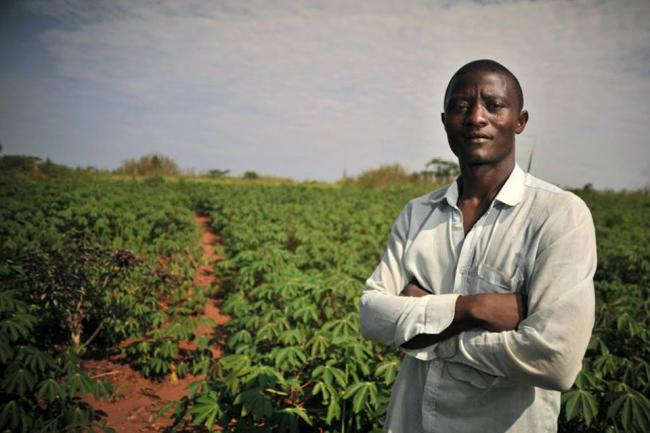
Global Goals on poverty and hunger require $265 billion annually – UN conference told
“The need is urgent,” Kanayo F. Nwanze, President of the International Fund for Agricultural Development (IFAD) said at last night's opening of a conference, titled “Investing in inclusive rural transformation: innovative approaches to financing,” held in Rome, Italy on 26-27 January.
“Despite decades of commitments and considerable effort to end poverty and hunger, nearly 800 million children, women and men still go hungry every day, and an almost equal number live in extreme poverty,” he added, stressing the need to be more creative in using public resources and mobilise financing.
He also emphasized the need to make it easier for the private sector and philanthropists to invest in rural areas, where rates of poverty and hunger are highest.
Speakers agreed it cannot be left up to governments alone. In 2015, Official Development Assistance (ODA) was approximately $192 billion and only $9 billion of that was earmarked for agriculture.
President of the International Fund for Agricultural Development (IFAD) Kanayo F. Nwanze, addresses the opening in Rome of a conference focused on finding innovative ways to finance rural development. Photo: IFAD
The conference comes at a critical time with political changes and humanitarian crises – such as war, migration and natural disasters – reshaping global priorities and potentially diverting money away from development.
The majority of these poor and hungry people live in rural areas of developing countries. Investments need to be targeted to transform rural areas into vibrant places that offer all people the opportunity to have decent jobs and lead dignified lives free of poverty and hunger.
Nwanze stressed that the financing needs for development are enormous, but so are the opportunities. “Agri-food is already a $5 trillion sector, and it is growing,” he said. “It holds tremendous promise for the private sector and for producers in developing countries.”
Co-organised by IFAD, the Italian Ministry of Economy and Finance, the Brookings Institution and the University of Warwick, the conference brings together development agencies, governments, philanthropic organisations, the private sector, academia and farmers' organisations to look at innovative ways to mobilise money and smarter ways to spend it.
IFAD invests in rural people, empowering them to reduce poverty, increase food security, improve nutrition and strengthen resilience. Since 1978, it has provided about $18 billion in grants and low-interest loans to projects that have reached some 462 million people.
Photo: FAO/Riccardo Gangale
Source: www.justearthnews.com
Support Our Journalism
We cannot do without you.. your contribution supports unbiased journalism
IBNS is not driven by any ism- not wokeism, not racism, not skewed secularism, not hyper right-wing or left liberal ideals, nor by any hardline religious beliefs or hyper nationalism. We want to serve you good old objective news, as they are. We do not judge or preach. We let people decide for themselves. We only try to present factual and well-sourced news.







